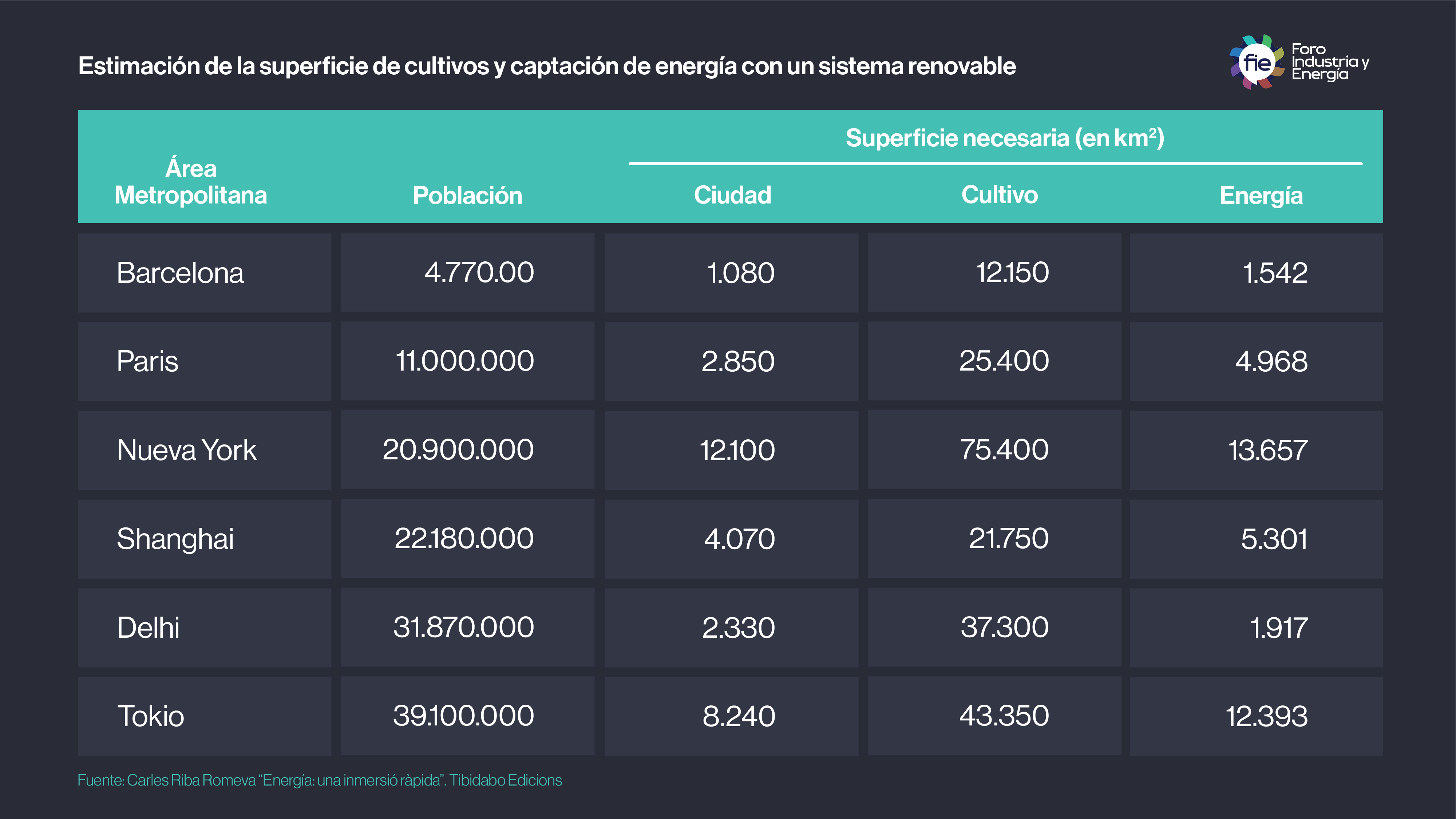
Albert Concepción. Director of Foro Industria y Energía
Visc en un poble petit,
en un país petit
i, tanmateix, vull que quedi ben clar
que aixó que escric ho escric per a tothom”
Read the full original in Crónica Global.
As Miquel Martí i Pol said, we live in a small country, but we want it to be clear that what we write, we write for everyone. These words carry a dose of reality that we cannot overlook and that will somehow influence the future of our energy and industrial management.
Being a small country has never prevented us from being an industrial power. But things change, and we are heading toward a global environment where energy management will be key to maintaining that status earned through hard work for so long.
Energy management, especially in the industry, also comes with its obligations and burdens. Especially in the current process of energy transition: it is only a matter of time before a day comes when we either produce our own renewable energy or have to buy it, as we have been doing with fossil fuels. No one doubts that energy management is key to maintaining competitiveness, a matter that has become central to European objectives and has been reinforced by the recent appointments of Teresa Ribera and Sthefane Séjourné as European commissioners.
The competitiveness of the Catalan industry largely depends on how that energy is managed, which translates into territorial needs for deploying photovoltaic or wind farms, biogas facilities, or hydroelectric projects. And if there is one thing we lack, it is space. Regarding land availability, we are not Aragón or Castilla-La Mancha, much less California, where they managed to cover 100% of their electricity demand for 46 days solely with wind, water, and solar energy, as Stanford professor Mark Jacobson explained.
Inevitably, the energy transition is coupled with territorial requirements, whether owned or “borrowed,” just as food supply is. Metropolitan areas depend on crops that come from outside to feed their citizens. The case of energy is very similar. According to Valclav Smil, photovoltaic energy needs 80 hectares to produce the same amount of energy that fossil fuels needed one hectare for. A hectare that, it should be noted, was located in the North Sea or the Persian Gulf and not precisely on a street corner in L’Eixample.
Does this mean we should give up on this transition? Of course not. But it is inevitable to be aware of the difficulties and recognize the imbalance in Catalonia, where a population of nearly 8 million people converges with a relatively small territory of just over 32,000 km². According to data from Carles Riba Romeva, to meet the needs of the metropolitan area of Barcelona alone, it would require allocating 5% of Catalonia’s surface area for renewable energy capture, which is much more than it seems, as it represents 320 m² per person and would occupy the entirety of the Valles Oriental, Valles Occidental, and Baix Llobregat regions.
Fortunately, it seems that the government of Salvador Illa is willing to get to work: during September of this year, the construction of 237 MW of photovoltaic and wind energy has been authorized, whereas last year, the total renewable power installed in Catalonia was only 37.7 MW. Additionally, the Minister of Environment, Silvia Paneque, has already announced concrete actions, such as expediting project processing or promoting biogas.
However, these statements of intent seem to overlook a fundamental issue: the improvement of energy transport networks. It is urgent to reflect not only on how we are going to produce our energy but also on where and how it will reach the industry in Catalonia.
At the recent Foro Industria y Energía, former presidents of the Generalitat, Artur Mas and José Montilla, agreed that things had not been done quite right in recent years in the field of energy management. Hopefully, the current President will not be forced to say the same thing in a few years. Being a small country should not prevent us from continuing to have a large and competitive industry in this new framework created by the energy transition. An industry that, like Martí Pol, “writes for everyone.”

